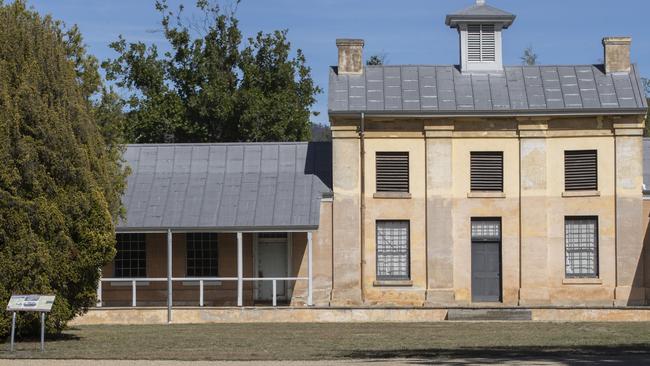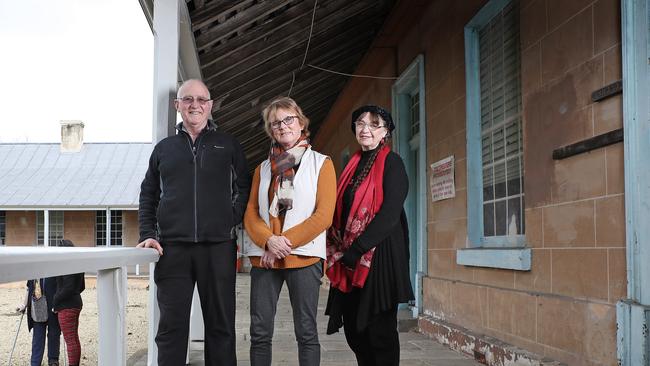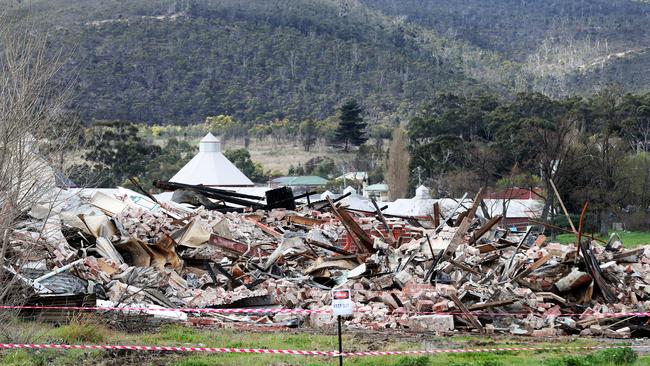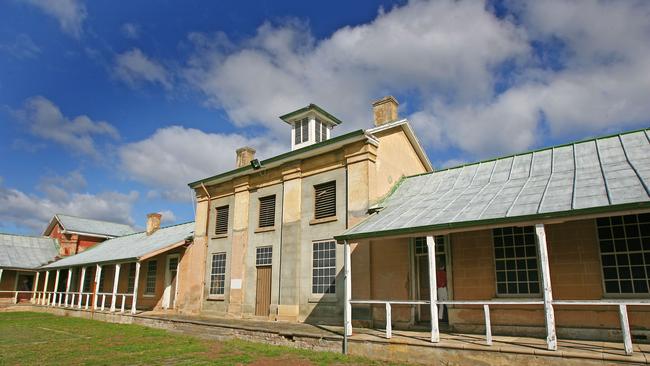Troubled and historic Willow Court at New Norfolk recognised as international site of conscience
It is one of Tasmania’s most historic sites and now Willow Court has been recognised internationally. Read what it means for its future.

Tasmania
Don't miss out on the headlines from Tasmania. Followed categories will be added to My News.
One of Tasmania’s most important historic sites — Willow Court at New Norfolk which predates Port Arthur — has been recognised internationally alongside a concentration camp in Europe, a Gulag museum in Russia and a 200 year old slave house in Africa.
The US-based International Coalition of Sites of Conscience has accepted as a member organisation, the Willow Court Heritage Site Inc (WCHSI) and provided a letter of support inviting the state government to acknowledge the membership.
Willow Court was established in 1827 for chronically ill convicts and eventually housed the Royal Derwent Hospital, which had more than 1000 beds and treated people with mental ill-
health and intellectual disability until it was closed in 2000.

Anne Salt, a former Royal Derwent Hospital mothercraft nurse who also discovered a young family member on the children’s ward, hailed the international recognition for the site.
“It’s validation of the work we have been doing for well over a decade to bring to national and global attention the importance of this history of intellectual disability and mental health treatment in Australia,” she said.
“We’ve already been provided with toolkits for doing oral histories. We’ve been linked up with other organisations around the world and the other three that are in Australia.”
The Willow Court precinct, which has been subject to vandalism, was too big a responsibility for the Derwent Valley Council, Ms Salt said.
“The history of this site is intrinsically linked to that of the history of Port Arthur, the Female Factory, the Orphan School, and it should come under the auspices of independent management that can bring this site to life to the same extent as Port Arthur and the Female Factory.”

Ms Salt said the history of Willow Court was now seen in a global context alongside many other sites around the world that had troubled and difficult histories.
Carleen Paul, who was in Royal Derwent for seven years as a teenager and is on the board of management of WCHSI, said it was important to remember the many people who had lived there.
“Their stories need to be told and their history understood,” she said.

WCHSI chair, John Grant, said the International Coalition of Sites of Conscience was a global network of museums, historic sites and grassroots initiatives dedicated to building a more just and peaceful future by remembering struggles for human rights and addressing their modern repercussions.
“A Site of Conscience is a place of memory – such as a historic site, place-based museum or memorial – that prevents this erasure from happening in order to ensure a more just and humane future,” he said.
“Not only do Sites of Conscience provide safe spaces to remember and preserve even the most traumatic memories, but they enable their visitors to make connections between the past and related contemporary human rights issues.”
The Sites of Conscience group has members in 70 countries.
Originally published as Troubled and historic Willow Court at New Norfolk recognised as international site of conscience



